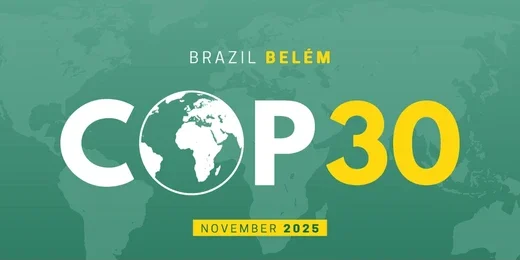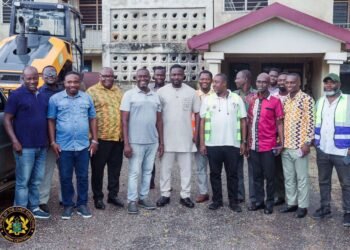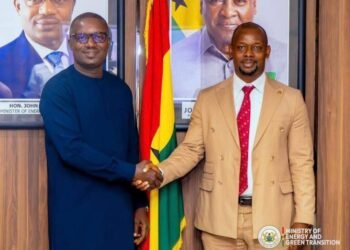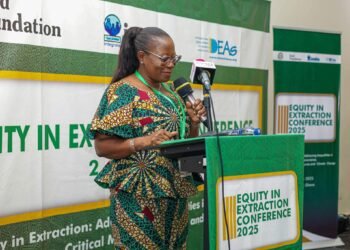The Pre-COP meeting has officially opened with a strong call for nations to advance the implementation of global climate agreements as a key path to strengthening multilateralism.
The session, held ahead of the United Nations Climate Change Conference (COP30), brought together high-level delegates and climate leaders, including Brazil’s Acting President Geraldo Alckmin, UNFCCC Executive Secretary Simon Stiell, and representatives from the COP30 Presidency Circles.
Opening the session, Acting President Geraldo Alckmin outlined the strategic pillars that will guide discussions at the forthcoming COP30 in Belém, Brazil, set to be one of the most significant climate summits since the Paris Agreement.
“The Brazilian Presidency of COP30 has proposed three central objectives: first, to strengthen multilateralism and the climate change regime within the framework of the United Nations Convention; second, to connect the climate regime to people’s real lives; and third, to accelerate the implementation of the Paris Agreement by promoting efforts and structural adjustments across all institutions capable of contributing to this endeavor.”
Brazil’s Acting President Geraldo Alckmin

He emphasised that the fight against climate change must be rooted in global cooperation and practical commitments, adding that countries’ Nationally Determined Contributions (NDCs) national plans that outline emission reduction targets remain the foundation of collective progress.
“This collective effort of cooperation among nations must be channelled into COP negotiations and focused on countries’ NDCs under the Paris Agreement.
“The submission of NDCs aligned with the 1.5°C target by governments is a decisive signal of their commitment to combating climate change and strengthening multilateralism.”
Brazil’s Acting President Geraldo Alckmin
Brazil’s New Climate Commitment

During his remarks, Acting President Alckmin reaffirmed Brazil’s leadership role in climate action and announced the country’s ambitious NDC 3.0, which was presented at COP29 in Baku.
Under the updated plan, Brazil aims to cut its net greenhouse gas emissions by 59% to 67% by 2035, compared to 2005 levels equivalent to eliminating between 850 million and 1.5 billion tonnes of CO₂ from the atmosphere.
“This new NDC from Brazil reflects the vision of a country that recognises the climate crisis, embraces the urgency of building resilience, and charts a pathway toward a low-carbon future for society, the economy, and its ecosystems.”
Brazil’s Acting President Geraldo Alckmin
The plan highlights Brazil’s broader strategy to balance economic growth with environmental protection, showcasing the nation’s determination to lead by example in the global energy transition and climate governance.
In his address, UNFCCC Executive Secretary Simon Stiell underscored the urgency of renewed global ambition and cooperation.
He revealed that the UNFCCC is preparing to release three key reports, one evaluating the ambition of existing NDCs, another assessing transparency frameworks, and a third reviewing National Adaptation Plans (NAPs).
“I encourage Parties that have not yet submitted their new NDCs to do so ahead of COP30.
“Delegates must have a comprehensive view of the global effort as they carry out their crucial work in Belém.”
UNFCCC Executive Secretary Simon Stiell
He stressed that progress on climate commitments cannot be delayed, adding that stronger collaboration and accountability among nations are essential to close the emissions gap and keep the 1.5°C target within reach.
Advancing the Energy Transition

Acting President Alckmin also spotlighted Brazil’s achievements in renewable energy, noting that the country has become a global example of a viable and profitable energy transition.
“While 69 countries generate 50% of their electricity from renewable sources, Brazil has already surpassed the 80% mark.”
Brazil’s Acting President Geraldo Alckmin
Alckmin described Brazil’s emission reduction plan as “bold yet realistic,” explaining that it combines energy transition, economic growth, and forest protection, three pillars essential to achieving sustainable development.
“We are proof that the energy transition is both feasible and profitable.
“We are committed and we expect the same commitment from the international community.”
Brazil’s Acting President Geraldo Alckmin
Echoing Alckmin’s message, Simon Stiell highlighted that the world’s energy systems are increasingly aligning with the goals of the Paris Agreement.
He noted that global investment in clean energy reached US$2 trillion in 2024, a record figure that reflects a decisive shift in how economies are evolving to confront climate change.
“Nearly 90% of newly added power generation capacity last year was renewable, driven by momentum in major economies.
“Yet substantial efforts are still required to ensure that the vast economic and human benefits of the energy transition are shared equitably among nations.”
UNFCCC Executive Secretary Simon Stiell
He warned that unequal access to technology and financing risks deepening global divides, particularly between developed and developing nations. “Equity and inclusion must remain at the centre of all discussions as we advance toward COP30,” he emphasised.
Road to Belém

As the Pre-COP discussions continue, the tone has been one of cautious optimism mixed with urgency.
Delegates are expected to refine proposals that will shape the agenda for COP30, with particular attention to strengthening multilateralism, scaling up adaptation finance, and ensuring a just and inclusive energy transition.
Brazil’s proactive leadership in hosting COP30 and its commitment to bridging climate policy with social and economic realities signals a pivotal moment for global climate governance.
For many observers, the Pre-COP has already set the tone for Belém: a conference focused not just on commitments, but on credible, actionable implementation that connects climate ambition to people’s lives.
READ ALSO: BoG’s $1.15bn FX Injection Sparks Clash with IMF and World Bank Over Cedi Stabilization





















